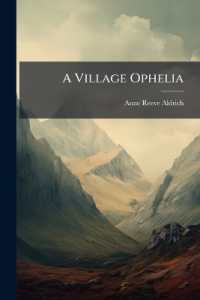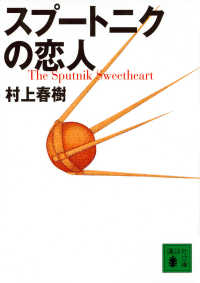- ホーム
- > 洋書
- > 英文書
- > Cinema / Film
Full Description
Screening Auschwitz examines the classic Polish Holocaust film The Last Stage (Ostatni etap), directed by the Auschwitz survivor Wanda Jakubowska (1907-1998). Released in 1948, The Last Stage was a pioneering work and the first narrative film to portray the Nazi German camp. Haltof's fascinating book offers to English-speaking readers a wealth of new materials and sources, mostly from original Polish sources and obtained through extensive archival research.
With its powerful dramatization of the camp experience, The Last Stage shaped subsequent Shoah films, establishing several quasi-documentary themes easily discernible in later Holocaust narratives: the dark, "realistic" images of the camp; the passionate moralistic appeal; and the clear divisions between victims and perpetrators. Jakubowska's film introduced the images of camp life that are now archetypal—for example, morning and evening roll calls on the Appelplatz, the arrival of transport trains at Birkenau, the separation of families, and tracking shots over the belongings left by the gassed camp victims. These and other images reinforced the depiction of Nazi German concentration camps and are discernible in a number of subsequent American films, including George Stevens's The Diary of Anne Frank (1959), Alan Pakula's Sophie's Choice (1982), and Steven Spielberg's Schindler's List (1993).
Haltof discusses the unusual circumstances that surrounded the production of the film on location at Auschwitz-Birkenau and summarizes critical debates surrounding the film's release. The book offers much of interest to film historians and readers interested in the Holocaust.








